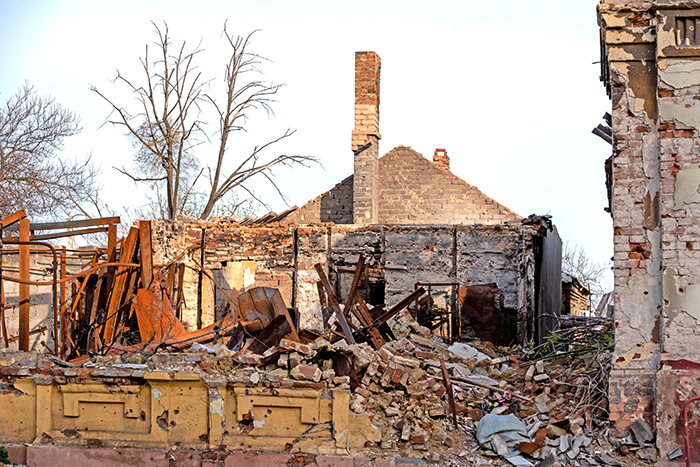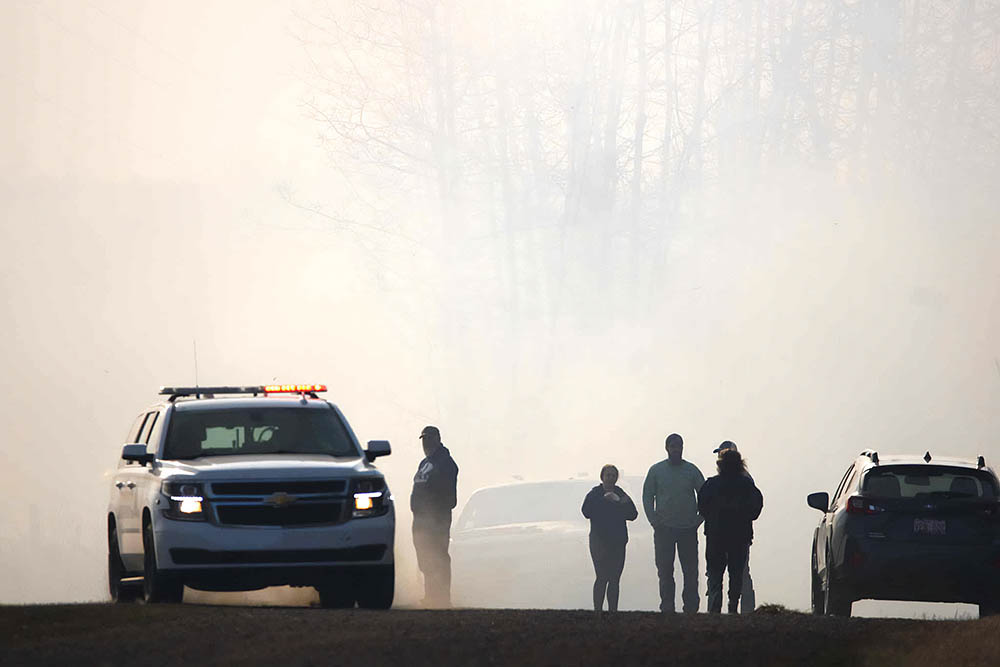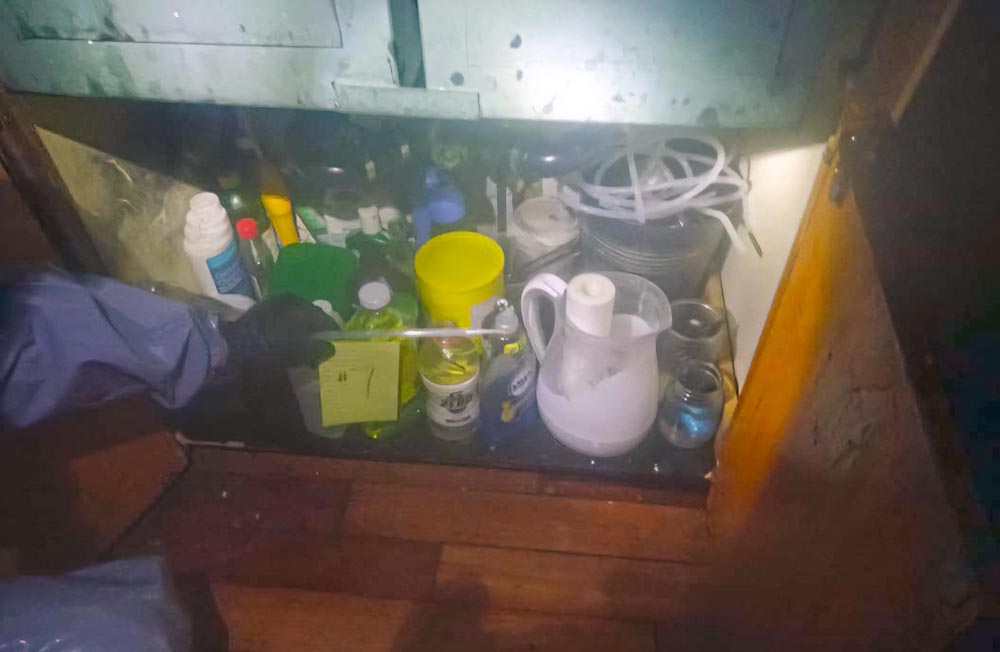Peter Shokeir
Local Journalism Initiative Reporter
Jasper residents will soon get estimates for how much it will cost to get their destroyed properties cleaned up in a mass debris removal program.
Coun. Wendy Hall requested an update on debris removal during a regular council meeting on Tuesday (Sept. 24). This comes as affected residents have begun to sign releases.
“I’m hearing concerns from residents around the cost as it’s the responsibility of the owner of the destroyed property and that they may not be willing to sign anything until they know how much it could be,” Hall said.
The Jasper wildfire is estimated to have destroyed 358 structures, around 30 per cent of the townsite, leaving behind much debris.
Michael Fark, municipal director of recovery, explained to council the first step was having a debris management plan approved by Parks Canada and getting a permit process in place. This has been a complex process given the volume of debris, the risk of hazardous materials and the need to address not just removal but also the transport and disposal of debris in a validated landfill site.
“To be clear, everybody must adhere and follow this waste management plan,” Fark said. “They are quite comprehensive and complex requirements that form part of any demolition permit that will be provided.”
Fark noted Parks Canada has agreed to essentially do large-scale permitting rather than individual site permitting.
“This is a significant win for the community,” he said. “It will expedite the process considerably and allow us to move that forward, but there are conditions of the permits that have to be met.”
EllisDon will be the primary contractor working with the Insurance Bureau of Canada (IBC) and is tendering for subcontractors to carry out this work. Fark said those tenders will close by the end of this week, and some pricing will come by early next week.
“This has been proven to be a very cost-effective method,” he added. “A similar method was applied, for example, in Slave Lake.”
Fark acknowledged the concerns from the public while noting that co-operating collectively on debris removal has proven to be more cost effective than individual homeowners attempting to remediate and remove the debris on their individual sites.
“And even if individual homeowners wish to work with their insurance companies to manage their sites independently, they are still required to follow the same debris management plan as everybody else,” he said.
Residents have specifically expressed concern about signing a release before knowing the pricing. Fark clarified there were two separate releases – one to Parks Canada indicating that the signee understood the conditions of permitting and agree to abide by them, the other to allow their insurance company to assign EllisDon as the prime contractor.
“We appreciate the fact that council has raised this concern to us because we realized that there was a disconnect between IBC and some of the individual insurance adjusters, so we are now taking steps to address that,” Fark said.
Coun. Rico Damota noted some residents had been initially confused since the release stated the leaseholder was the client and not their insurance company. He noted there was some fear around insurance payouts not being able to cover the full cost.
“Some of the numbers that are floating out there are astronomical, like $500,000 per lot,” Damota said. “People are fearful of being out of pocket for the extra expenses, and I think that’s where a lot of the issues lie.”
Fark replied they understood the sensitivity around debris removal cost but noted $500,000 was a purely speculative figure and the cost per lot would be “substantially orders of magnitude less expensive.”
As for uninsured properties, Fark said the Red Cross would be working with the IBC to ensure debris removal costs are covered. He added the Jasper Recovery Coordination Centre was working with the IBC to get more information out to the public about debris removal and allow residents to make informed decisions.
Peter Shokeir
Local Journalism Initiative Reporter
Jasper Fitzhugh


